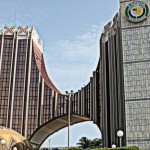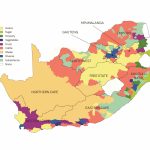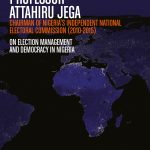On Tuesday 7th January I attended a fascinating event organised by the Royal African Society: “Africa in 2014: Prospects & Forecasts”. The speakers were Patrick Smith, Editor-in-Chief of Africa Confidential and Africa-Asia Confidential; Razia Khan, Regional Head of Economics, Africa at Standard Chartered Bank; Lanre Akinola, Editor of This is Africa; and Yemisi Mokuolu, Founder of Hatch Events. Here are 10 of the things I found instructive.
1. A vaccination for malaria might become a reality – Mosquirix, developed by GlaxoSmithKline, is being touted as the most advanced and effective malaria vaccine for infants and children to date. Targeting the Plasmodium falciparum parasite, which causes the most deadly strain of malaria, the introduction of Mosquirix has the potential to radically alter the treatment of the disease in Africa.
2. Trade unions continue to bang on the door of government – In 2013, a series of public sector strikes over pay disputes rocked Kenya, Ghana and Nigeria, three of Africa’s most dynamic economies. But it is in South Africa that things are really heating up. The National Union of Metal Workers (Numsa), the country’s largest trade union, officially withdrew its support for the ruling Africa National Congress ahead of the 2014 elections. Numsa has since called on its federation, the Congress of South African Trade Unions (Cosatu), to follow suit. The signs are that suspended secretary-general of Cosatu, Zwelinzima Vavi, will champion calls for an anti-Zuma vote by Cosatu in the forthcoming elections.
3. But is this a swansong for unions? – Unless unions can deliver tangible benefits for their members, they are likely to lose clout over time. In South Africa, the majority of job creation has taken place in the informal and service sectors, which are notoriously difficult to unionise. Frosty relations between the ANC and trade unions might be an opportunity for the ruling party to develop a more independent political position not beholden to “worker demands”.
4. More growth – Ongoing political risk and instability in South Sudan, the Central African Republic and Mali are unlikely to impact on the continent’s growth prospects. The economic outlook for 2014 is positive, with the continent projected to grow by 5.5 percent. Why? Africa’s largest economies are driving growth, notably Nigeria, Kenya, Ethiopia, Ghana and Angola. In the coming year, the power and influence of these countries will become further entrenched.
5. There is more to growth than commodities – The stabilisation of demand, rather than a renewed surge in the price of key commodities, will underpin Africa’s economic performance in 2014. African economies have not benefitted from high commodity prices to the extent that is commonly assumed. A more detailed look at national economic data highlights the prominence of the African consumer in driving growth, with commodities playing more of a supporting role. Resource exploration will, however, continue to gather pace, and is likely to have a significant impact on future growth trajectories.
ALSO READ: China’s new competitor: Africa
6. Nigeria is a microcosm of the continent – In 2004-10, the Nigerian economy grew at a rate of 7% per annum. Over the same period, poverty levels also grew by 6.5 percent a year. The gulf between those (few) who benefit from economic growth and the poorest in society will become more pronounced in 2014 – and not just in Nigeria. Job creation is not taking place on the scale needed to reduce poverty. As such, there is a pressing need to untangle the continent’s investment narrative from development realities
7. Regional integration is essential, but not inevitable – Most economies in Africa are too small to attract much-needed investment on their own. Increasing market size by integrating economic policies and procedures with those of neighbouring countries is the only realistic hope for sustained growth over time. While the East African Community is arguably the best illustration of what can be achieved through regional integration, the pace of these developments across the continent remains sluggish.
8. It’s not all about China – Bold steps continue to be taken by new development partners. In December 2013, Turkey became the 78th member state of the African Development Bank. In the same month, Brazil’s National Bank for Economic and Social Development (BNDES) intensified its activities on the continent by opening a branch in Johannesburg, South Africa – only its third office overseas in just over half a century of operating.
9. Introducing MINT (Mexico, Indonesia, Nigeria and Turkey) – Jim O’Neill, the economist who coined the acronym BRICS, tips MINT countries to assert their economic credentials in 2014. They stand out, he argues, because all four have favourable demographics for at last 20 years and possess a unique economic potential.
10. Africa is not rising – It is changing. Period.
by Jonathan Bhalla, Research manager at Africa Research Institute












